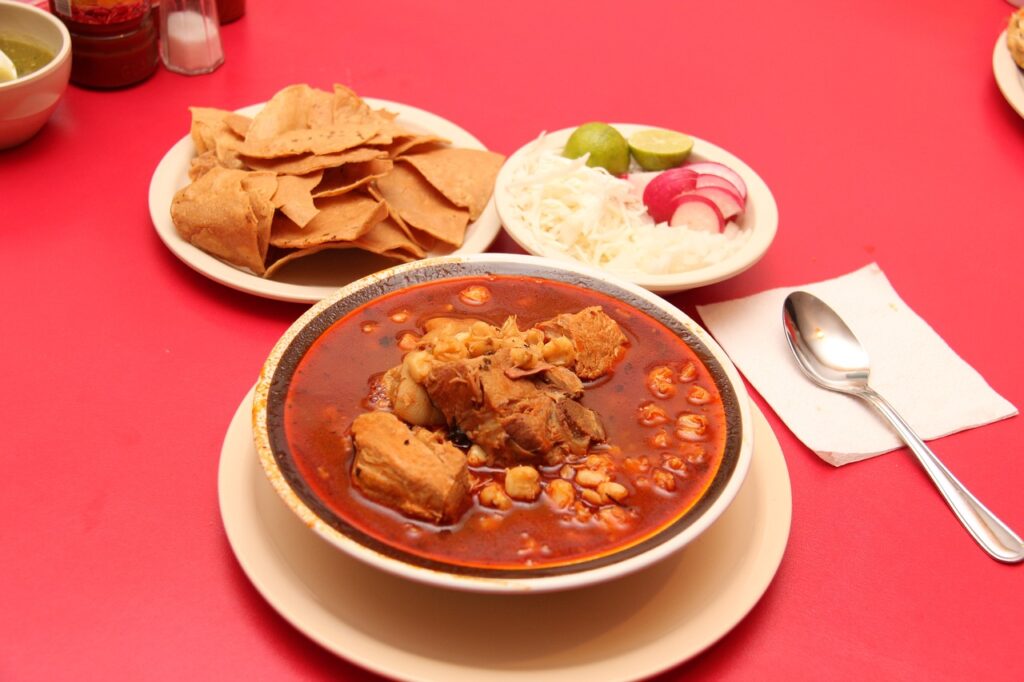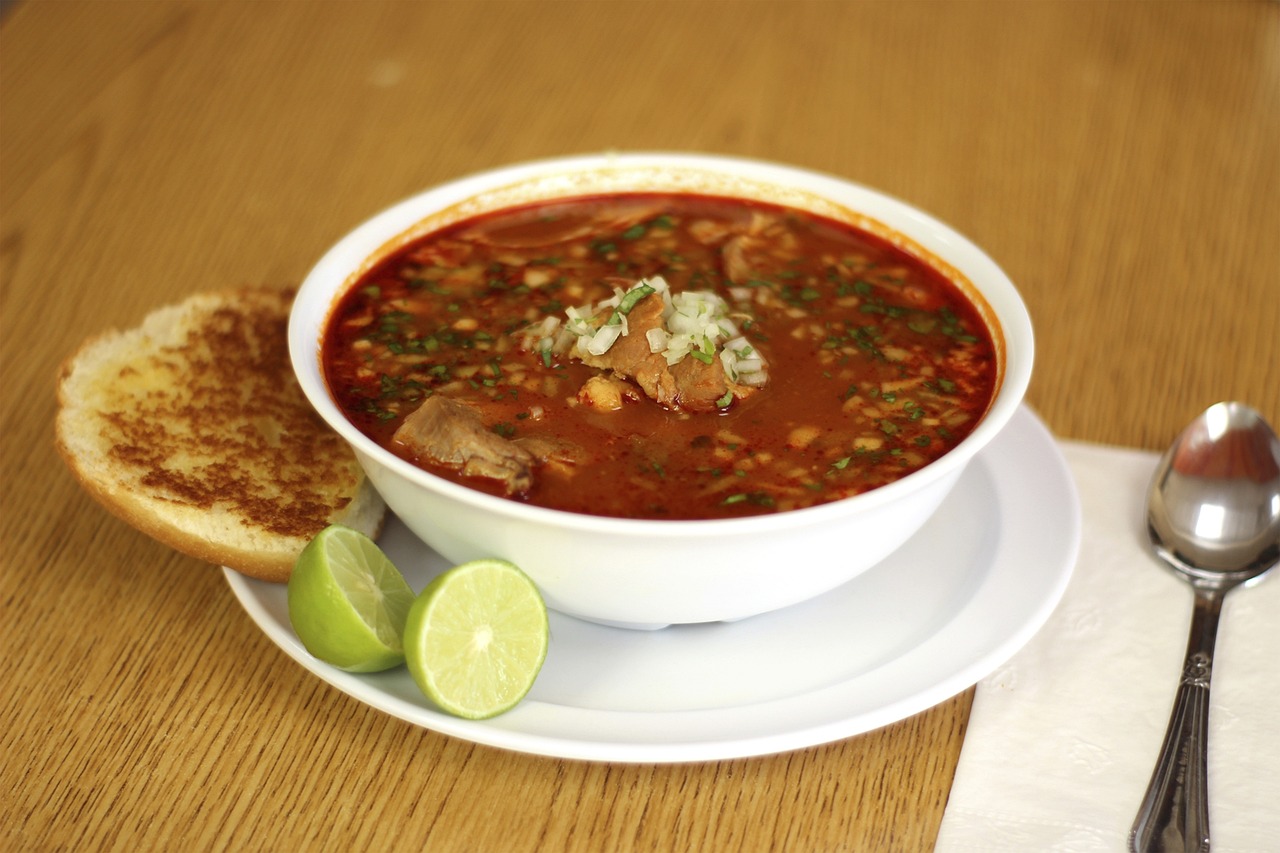Pozole is a traditional Mexican dish that is loved by many. It is a flavorful soup made with hominy, meat, and various spices. As a dog owner, you may be wondering if it is safe to share this delicious treat with your furry friend. In this article, we will explore whether dogs can eat pozole and provide you with all the information you need to make an informed decision.
Is Pozole Safe for Dogs?
While pozole can be a tasty and nutritious meal for humans, it may not be suitable for our canine companions. Dogs have different dietary needs and digestive systems compared to humans. Some ingredients commonly found in pozole, such as onions and garlic, can be toxic to dogs and should be avoided.

The Dangers of Onions and Garlic
Onions and garlic belong to the Allium family and contain compounds that can cause damage to a dog’s red blood cells. This can lead to a condition called hemolytic anemia, which can be life-threatening. Symptoms of onion or garlic toxicity in dogs may include weakness, vomiting, diarrhea, and pale gums.
Other Ingredients to Consider
Aside from onions and garlic, pozole often contains spices like chili powder, which can cause gastrointestinal upset in dogs. Additionally, the high sodium content in pozole can be harmful to dogs, especially those with certain health conditions like kidney disease or heart problems.
Alternatives to Pozole for Dogs
If you’re looking to treat your dog to a special meal, there are plenty of safe and healthy alternatives to pozole. You can prepare homemade dog-friendly soups using ingredients like lean meats, vegetables, and grains. Just make sure to avoid using any harmful ingredients like onions, garlic, or excessive amounts of salt.
Consulting with Your Veterinarian
It’s always a good idea to consult with your veterinarian before introducing any new food into your dog’s diet. They can provide personalized advice based on your dog’s specific needs and health conditions. Your vet may also recommend suitable alternatives or modifications to traditional recipes to ensure your dog’s safety and well-being.
In conclusion, while pozole may be a delicious and comforting dish for humans, it is not recommended to feed it to your furry friend. The presence of ingredients like onions, garlic, and excessive sodium can pose serious health risks to dogs. Instead, opt for homemade dog-friendly soups or consult with your veterinarian for safe and nutritious alternatives.
FAQs
1. Can dogs eat hominy?
Yes, dogs can eat hominy in moderation. Hominy is a type of corn that has been treated with an alkali solution, which removes the hull and germ. It is a good source of fiber and can be a healthy addition to your dog’s diet. However, it’s important to serve hominy plain, without any added spices or seasonings.
2. Are there any other Mexican dishes that dogs can safely eat?
Yes, there are several Mexican dishes that can be safely shared with your dog. Some examples include plain grilled chicken or beef, steamed vegetables, and plain rice. Just make sure to avoid any ingredients that are toxic to dogs, such as onions, garlic, and excessive amounts of salt.
3. Can dogs eat pork pozole?
Pork pozole should be avoided for dogs. Pork can be difficult for dogs to digest and may cause gastrointestinal upset. Additionally, the spices and seasonings used in pork pozole can be harmful to dogs. It’s best to stick to dog-friendly alternatives that are safe and nutritious for your furry friend.
4. Can dogs eat pozole broth?
While the broth of pozole may be less harmful than the actual dish, it is still not recommended to feed it to your dog. The broth may contain traces of harmful ingredients like onions, garlic, and excessive sodium. It’s always best to err on the side of caution and choose safe alternatives for your dog’s diet.
5. What should I do if my dog accidentally eats pozole?
If your dog accidentally consumes pozole or any other food that may be harmful to them, it’s important to monitor them closely for any signs of distress or illness. Contact your veterinarian immediately for guidance. They may recommend inducing vomiting or other necessary steps to ensure your dog’s safety and well-being.

